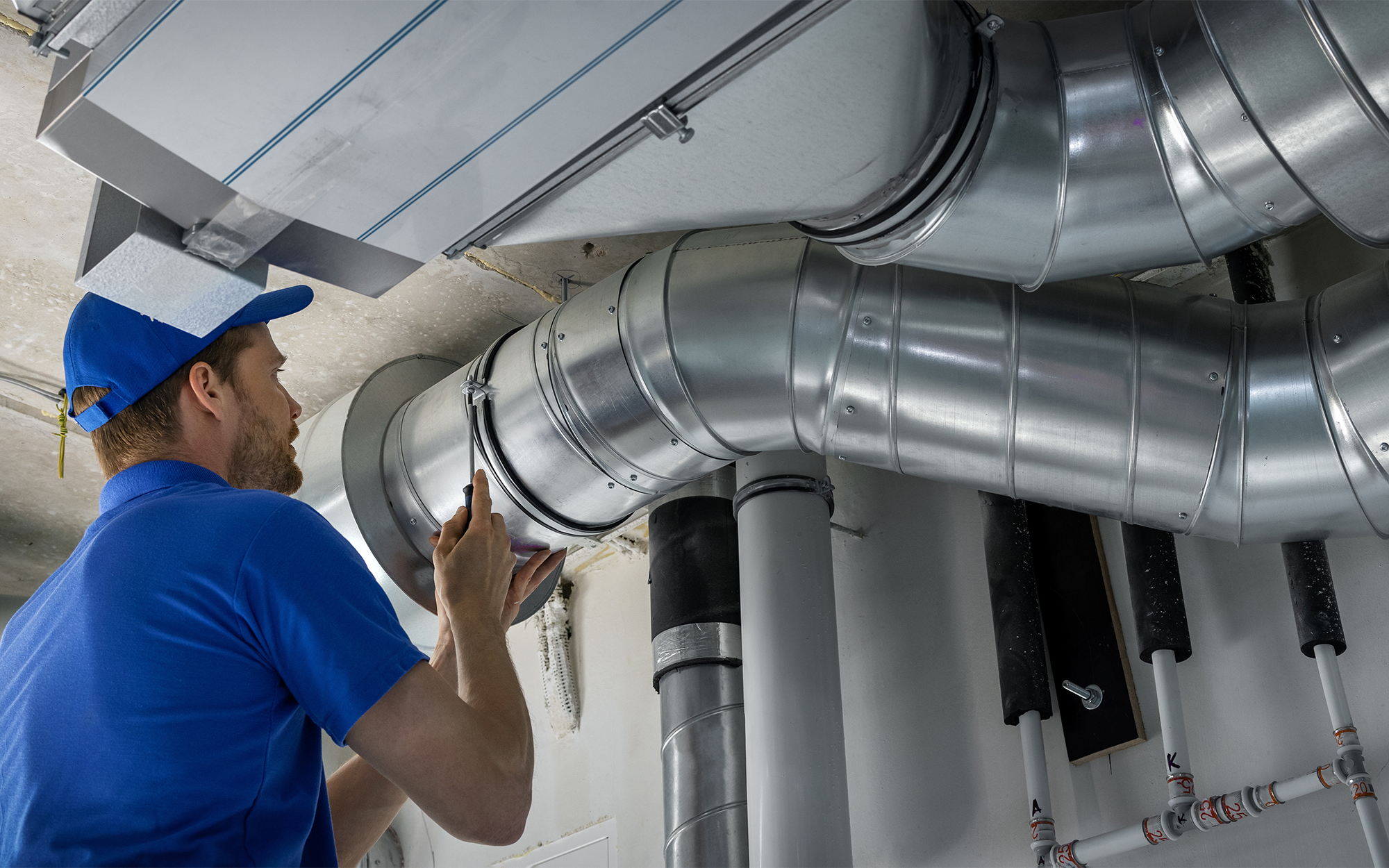Comprehending the Various Kinds of Cooling And Heating System for Optimum Efficiency
Understanding the different sorts of heating and cooling systems is vital for homeowners aiming to enhance comfort and power efficiency. Central air systems give consistent temperature level control, while ductless mini-split systems offer flexibility. Heatpump supply reliable year-round environment management. For smaller rooms, window and portable air conditioning system function as sensible options. Geothermal systems utilize consistent below ground temperatures for lasting cooling and heating. Each choice holds unique benefits, triggering a closer evaluation of which could fit private requirements best.
Central Air Conditioning Systems
Although many property owners look for methods to enhance indoor comfort, recognizing air conditioning systems is important for reliable environment control. Central air operates by flowing great air via a system of air ducts, dispersing it evenly throughout the home. This kind of system includes a number of crucial parts, consisting of an outside compressor, an indoor evaporator coil, and a network of ductwork.
The compressor cools down cooling agent, which after that absorbs heat from interior air as it travels through the evaporator coil. This cooled down air is pushed with the air ducts and into living areas, guaranteeing a constant temperature level. Air conditioning systems are recognized for their performance, commonly utilizing programmable thermostats to enhance energy use. Routine maintenance, such as filter adjustments and system checks, is important to guarantee long life and performance. Recognizing these components helps house owners make educated choices concerning installation and upkeep, inevitably boosting comfort and power efficiency in their homes.

Ductless Mini-Split Solutions
Ductless mini-split systems supply a versatile choice to conventional central air, accommodating property owners seeking efficient climate control without the need for considerable ductwork. These systems include an outside compressor unit and one or more indoor air-handling systems, permitting targeted cooling and heating in particular locations or areas. This zoning capacity boosts convenience by enabling users to adjust temperature levels based upon individual preferences, ultimately leading to energy financial savings.
Setup is usually simpler and less intrusive compared to ducted systems, which can be advantageous for older homes or rooms with minimal structural modifications. Additionally, ductless mini-split systems usually include energy-efficient modern technologies, such as inverter-driven compressors, which maximize power intake based upon need. Their compact design likewise permits numerous placement alternatives, making them excellent for unusual or tight areas. Because of this, ductless mini-split systems have actually obtained popularity among property owners looking for modern, reliable HVAC services.
Warmth Pumps
Heatpump represent an energy-efficient and functional alternative for both heating and cooling domestic areas. These systems run by moving heat rather than generating it, making them specifically effective in modest environments. During warmer months, heat pumps extract warm from inside and release it outside, giving cooling. Conversely, in winter months, they reverse this procedure, drawing warmth from the outdoors air or ground to warm the interior.
There are two primary sorts of heatpump: air-source and ground-source (or geothermal) Air-source heatpump are much more usual due to their easier installment and reduced first price, while ground-source versions boast higher performance and security in efficiency. In addition, warmth pumps can notably minimize power expenses and carbon impacts when contrasted to conventional home heating approaches, making them an eco-friendly option. Overall, warm pumps stand as a compelling option for property owners seeking efficient environment control throughout the year.
Home Window and Portable Air Conditioners

On the other hand, mobile air conditioning unit provide versatility, as they can be quickly moved from room to room. These systems generally call for an airing vent set to exhaust warm air through a window, yet they provide a practical option for temporary cooling needs.
Both kinds of ac system are suitable for renters and those seeking to prevent comprehensive installation procedures. Customers should consider aspects such as BTU ability, power performance ratings, and sound levels when selecting a system to guarantee peak performance for their certain room and cooling requirements.
Geothermal Home Heating and Air Conditioning Solutions
As power efficiency comes to be progressively essential, geothermal heating & cooling systems have acquired popularity for their lasting strategy to climate control. These systems use the secure temperature levels found underground to supply heating in winter months and cooling in summertime. By taking advantage of the planet's natural thermal energy, geothermal systems substantially decrease dependence on nonrenewable fuel sources and lower energy prices.

In addition, geothermal systems usually call for much less maintenance compared to traditional a/c systems, resulting in lasting savings - HVAC experts. With enhancing recognition of environment adjustment, these systems stand for a forward-thinking service for those looking for eco-friendly and reliable home heating and cooling down alternatives
Frequently Asked Questions
Just how Often Should I Solution My HVAC System?
Heating and cooling systems need to ideally be serviced two times a year, when in the springtime and as soon as in the fall. Routine maintenance aids guarantee efficiency, lengthens lifespan, and stops costly breakdowns throughout top use periods.
What Dimension A/c System Do I Required for My Home?
Figuring out the proper dimension for a heating and cooling system needs calculating the home's square footage, insulation quality, and climate. An expert evaluation guarantees maximum efficiency, convenience, and power cost savings tailored to the particular requirements of the residence.
Can I Set Up a Heating And Cooling System Myself?
Installing a cooling and heating system independently is feasible, yet it requires technological understanding and skills. Errors can lead to inadequacy or safety threats, so speaking find more with a specialist is usually recommended to ensure proper installment and conformity with laws.
What Are the Indications My HVAC System Needs Repair Work?
Signs that an a/c system needs repair consist of unusual sounds, inconsistent temperatures, raised power costs, unpleasant smells, and frequent cycling. Prompt interest to click to read more these signs can prevent further damages and warranty top system efficiency.
How Can I Boost My cooling and heating System's Energy Effectiveness?
To boost cooling and heating power performance, one need to regularly change filters, seal air ducts, set up a programmable thermostat, warranty proper insulation, and timetable regular maintenance checks. HVAC experts. These activities jointly enhance performance while decreasing power intake and costs
Central air conditioning systems supply consistent temperature control, while ductless mini-split systems use versatility. Central air conditioning runs by circulating amazing air through a system of air ducts, dispersing it evenly throughout the home. Central air conditioning systems are recognized for their effectiveness, frequently using programmable thermostats to enhance energy use. Ductless mini-split systems offer an adaptable choice to conventional main air conditioning, providing to property owners looking for efficient environment control without the demand for considerable ductwork. Geothermal systems typically require less maintenance compared to traditional HVAC systems, resulting in long-term savings.